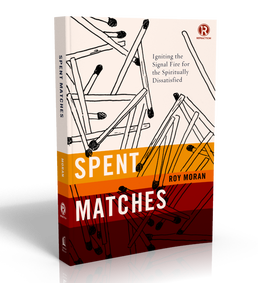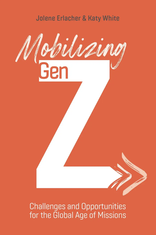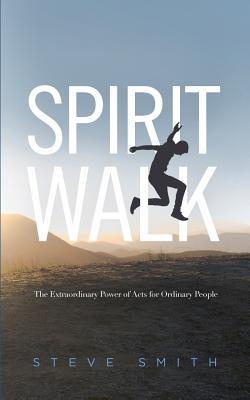Moran explores a number of topics through the lens of the paradigm shifts made at his church in Kansas City. One of the elements that Shoel Creek Church has adopted is the use of Discovery Bible Study (DBS) for their weekly groups.
Who can lead a DBS? We commission both doubters and worshipers to facilitate these groups. Our comfort level comes from two places. One, Jesus showed no anxiety when He commissioned both groups to take His mission forward. And two, we make the Bible the authority in these groups, so we aren’t leader dependent. Why DBS is helpful for those with little Bible experience? We have discovered that when you have people who are inexperienced in the Bible, staying in one simple passage makes their initial experiences comfortable rather than making them feel dumb. When a flurry of Bible passages starts being tossed around, they shrink from the discussion and try to find a place to hide. The tragedy is they may never come back. We also want our facilitators to understand that this is a process of discovery. People buy into, believe, and act on their own conclusions far more than the conclusions given to them by other people. The group is designed for people to hear from God themselves, so the idea of teaching or telling people what to believe about the passage doesn’t belong in a Journey (or Discovery) Group. Thoughts about facilitating a DBS Many facilitators have the gift of hospitality and love having people in their homes. They may unintentionally hinder the flow of the generational growth of the gospel with this gift. If every person in a group is to be seen as a potential disciple-maker, facilitators must not do anything that others think they can’t do. Another important shift is shared facilitation. If one facilitator is still doing all the facilitation after the third group meeting, he or she is doing a bad job! The process is so simple and repeatable that after being in a Journey/Discovery Group a few times, it is simple to ask the seven basic question and bring the accountability piece to the table. So, in effect, our facilitators are facilitator coaches. Dependency is a subtle and evil issue. The hard truth is that many of us love spiritual leadership because of the dependencies that it creates. Often others’ dependency on us gives us purpose and meaning. It can even provide a diversion from our own pain as we help others deal with theirs. In the guise of wanting to follow Jesus, we inherently stunt people’s growth by teaching them to depend on us, and we create unnecessary stress on ourselves. The more we do for people the worse off they are. It is no wonder we have a lethargic church in the West. Most of what flies under the name of ministry is a subtle codependent relationship between leaders and followers: leaders who need to be needed and followers who want someone besides themselves to be responsible for their spiritual journey. Group members often share by mentioning to friends that they learned something while reading the Bible. Since these group members are coming from pre-Christian relational networks, this mention creates a conversation, one that can lead to replication. When friends learn that someone is in a group reading the Bible, and no one is shoving religion down their throats, it piques their interest. Some might even want to join the group. This is where the DNA of replication begins. Groups need to multiply, not grow. The Bible is the authority in the discovery process, so no need exists for a subject-matter expert to explain it to people. God’s Word is not being taught, but read and obeyed. God is the teacher leading people to Jesus (John 6:44–46). When a friend asks to join, a facilitator can suggest that, instead of adding to this group, which will further create time issues, start another group. This is a winnable argument, because the process is so easy anyone can do it. Just do what has been done in the initial group. There is no traction in the spiritual journey without getting your fingerprints on the Bible.
0 Comments
Your comment will be posted after it is approved.
Leave a Reply. |
The E2E Community
Categories
All
Good Books
Archives
April 2024
|
Proudly powered by Weebly






